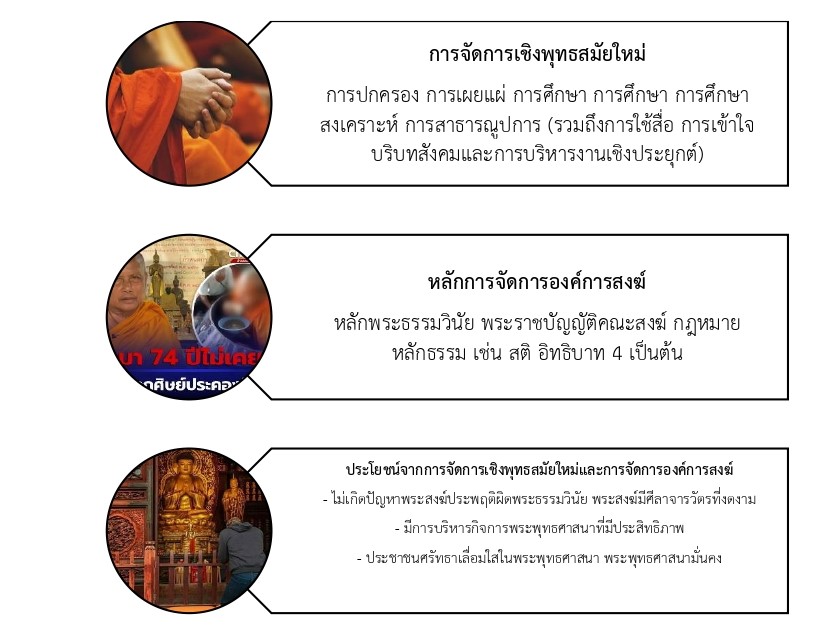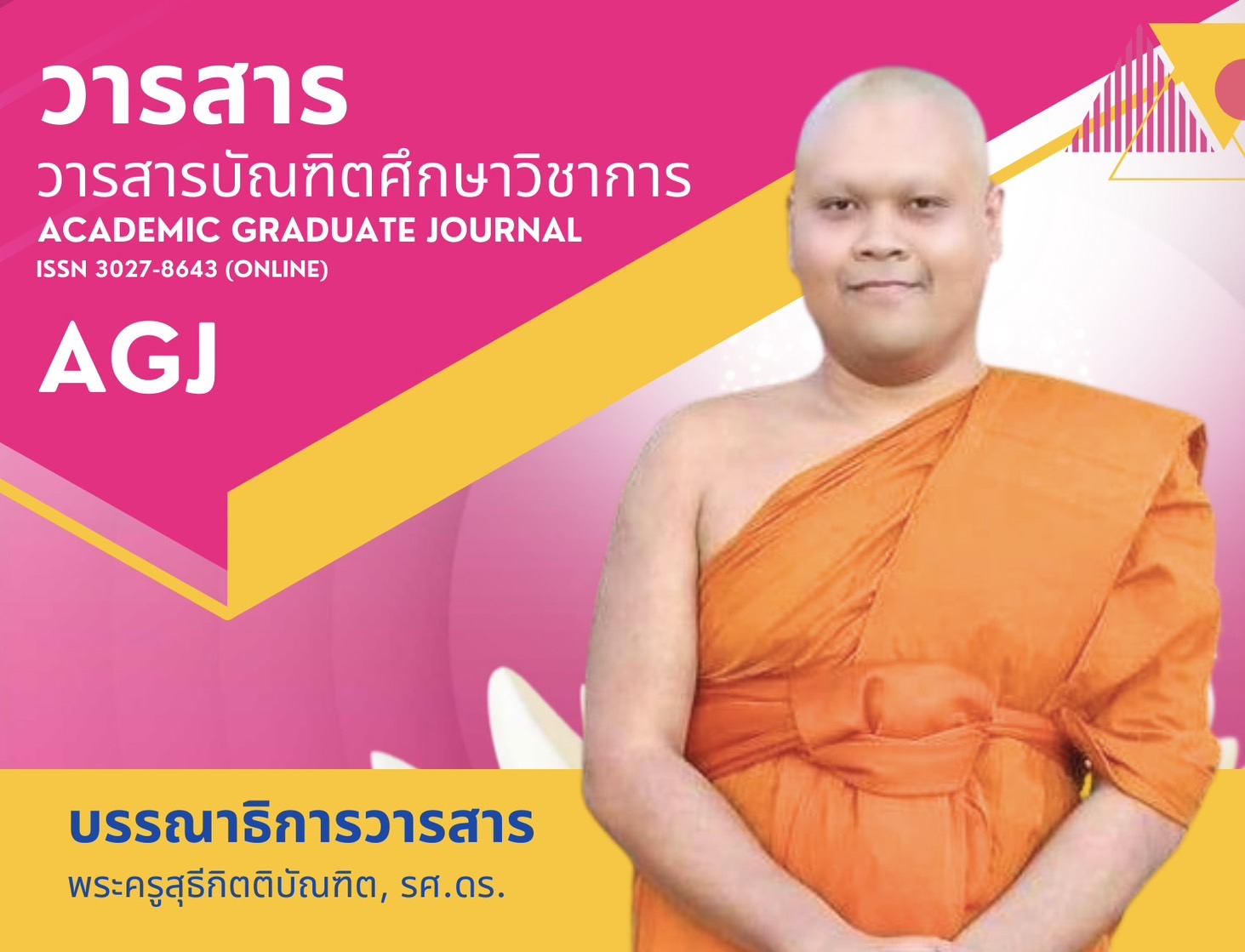MODERN BUDDHIST MANAGEMENT AND MONASTIC ORGANIZATION MANAGEMENT
Keywords:
Buddhist management, Buddhist organization, ModernAbstract
This academic article aims to study modern Buddhist management and monastic organization management. By researching books, textbooks, and websites, and analyzing and synthesizing concepts based on Buddhist principles. The results of the study found that 1. Modern Buddhist management is the application of Buddhist principles or integration with modern organizational management. In the current situation, there has been a great deal of change. Modernity in information technology Communication and coordination are fast. Able to apply Dhamma principles, for example, the principle of mindfulness is remembering before thinking, before speaking, before acting, and Yomanasikāra is considering and reflecting, not believing anything without having received clear information, etc. The second part is Buddhist management which focuses on the method. There are 6 aspects of monastic administration, namely governance, propagation of Buddhism, education, and educational assistance. Public assistance and public utilities which is the organizational management of the Sangha 2. Modern Buddhist management must rely on the principles of the Dhamma and Vinaya from the Buddha's time that the Lord Buddha laid down, including references to Western concepts or the Sangha Act, including various laws used in organizational management. The Sangha has a clear division of duties, and the important thing is the application of Dhamma principles for maximum benefit. Therefore, it is perfect in the matter of managing the Sangha organization and including its use in administration. Organization effectively If Dhamma principles are used, they will be combined with useful things to make the picture clearer.
References
พงศ์สัณห์ ศรีสมทรัพย์ และชลิดา ศรมณี. (2531). หลักการจัดองค์การและการจัดการ (พิมพ์ครั้งที่ 5). กรุงเทพฯ: ห.จ.ก.แสงจันทร์การพิมพ์.
พระธรรมปิฎก ป.อ. ปยุตฺโต. (2543). พจนานุกรมพุทธศาสตร์ ฉบับประมวลศัพท์ (พิมพ์ครั้งที่ 9). กรุงเทพฯ: โรงพิมพ์มหาจุฬาลงกรณราชวิทยาลัย.
พระเมธีธรรมาภรณ์ ประยูร ธมฺมจิตฺโต. (2541). คุณธรรมสำหรับนักบริหาร (พิมพ์ครั้งที่ 2). กรุงเทพฯ: บริษัท สหธรรมิก จำกัด.
พุทธทาสภิกขุ. (มปป.). การบริหารธุรกิจแบบพุทธ. กรุงเทพฯ: เคล็ดไทย.
มหาจุฬาลงกรณราชวิทยาลัย. (2539). พระไตรปิฎกภาษาไทย ฉบับมหาจุฬาลงกรณราชวิทยาลัย. กรุงเทพฯ: โรงพิมพ์มหาจุฬาลงกรณราชวิทยาลัย.
สมเด็จพระมหาสมณเจ้ากรมพระยาวชิรญาณวโรรส. (2538). วินัยมุข เล่ม 3 หลักสูตรนักธรรมชั้นเอก (พิมพ์ครั้งที่ 28). กรุงเทพฯ: โรงพิมพ์มหามกฏราชวิทยาลัย.
สัมฤทธิ์ ท่าเหล็กเจริญ. (2546). ปัญหาในการปฏิบัติงานของผู้บริหารองค์การบริหารส่วนตำบล : ศึกษากรณีองค์การบริหารส่วนตาบลในเขตจังหวัดปทุมธานี. กรุงเทพฯ: มหาวิทยาลัยรามคำแหง.
สุรพล สุยะพรหม และคณะ. (2555). ทฤษฎีองค์การและการจัดการเชิงพุทธ. กรุงเทพฯ: โรงพิมพ์มหาวิทยาลัยมหาจุฬาลงกรณราชวิทยาลัย.
สุลักษณ์ ศิวรักษ์. (2538). การบริหารงานแบบพุทธ. กรุงเทพฯ: บริษัทส่องสยาม จำกัด.
เสนาะ ติเยาว์. (2546). หลักการบริหาร (พิมพ์ครั้งที่ 3). กรุงเทพฯ: โรงพิมพ์มหาวิทยาลัยธรรมศาสตร์.







